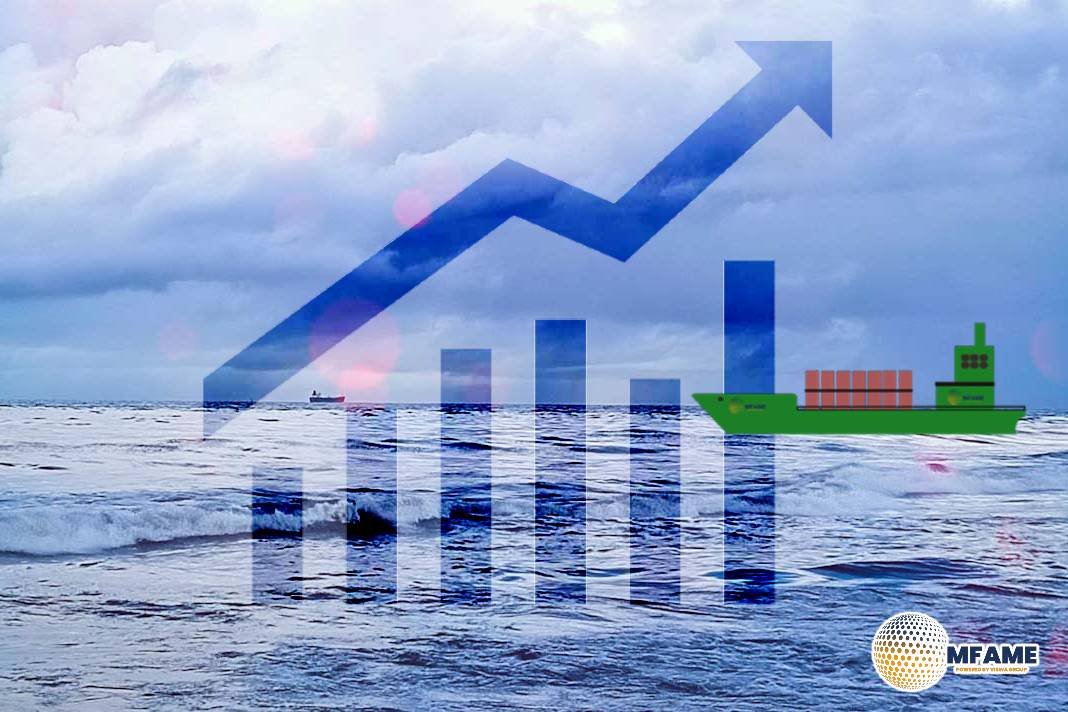 During Week 48, MABUX’s global bunker indices saw a slight decline. The 380 HSFO index dropped to 528.89 USD/MT, VLSFO index decreased to 667.76 USD/MT, and MGO index fell to 925.38 USD/MT. Currently, market trends remain uncertain.
During Week 48, MABUX’s global bunker indices saw a slight decline. The 380 HSFO index dropped to 528.89 USD/MT, VLSFO index decreased to 667.76 USD/MT, and MGO index fell to 925.38 USD/MT. Currently, market trends remain uncertain.
Global Scrubber Spread
Global Scrubber Spread (SS) – the price difference between 380 HSFO and VLSFO – showed a moderate decrease, standing at minus $9.33 ($138.87 compared to $148.20 last week), still above the $100.00 breakeven mark for SS Spread. However, the weekly average showed an increase of $5.51.
In Rotterdam, the SS Spread remained unchanged at $96 for the week, staying below the $100 mark, with a weekly average decrease of $2.50. Singapore experienced the most significant reduction in the 380 HSFO/VLSFO price difference, reaching minus $56 ($188.00 versus $244.00 last week), falling below the $200 mark for the first time since October 27. The weekly average in Singapore also decreased by $16.16. We expect the trend towards a moderate reduction in SS Spread will continue next week.
Europe’s Gas Dynamics
Europe’s weakened natural gas demand during autumn is experiencing a resurgence, driven by lower-than-usual temperatures across most regions and an anticipated freeze extending until early December. The updated weather forecast, particularly in Germany—the largest economy and natural gas consumer in Europe—predicts colder temperatures this weekend and into the next week.
Despite these developments, the market remains relatively calm compared to last year, primarily attributed to the still abundant inventories at EU gas storage facilities. As of November 22, EU storage levels reached 98.4% capacity. Meanwhile, Europe’s gas prices began to climb last week as market attention shifted towards winter supply risks. Natural gas traders are actively assessing potential risks to European gas supply this winter, with weather conditions emerging as the most significant variable for traders, suppliers, and governments.
Portugal
The price of LNG as bunker fuel in the port of Sines (Portugal) has continued its upward trend, reaching 987 USD/MT on November 27. This marks a notable increase of 66 USD compared to the previous week.
At the same time, the difference in price between LNG and conventional fuel on November 27 increased sharply again: 93 USD in favor of MGO versus 23 USD a week earlier: MGO LS was quoted on this day in the port of Sines at 894 USD/MT.
MDI index
In the 48th week, the MDI index (the ratio of market bunker prices (MABUX MBP Index) vs. the MABUX digital bunker benchmark (MABUX DBP Index)) recorded the following trends in four selected ports: Rotterdam, Singapore, Fujairah and Houston:
HSFO segment
In the 380 HSFO segment, all four selected ports remained undervalued. The weekly average increased by 1 point in Rotterdam and 4 points in Houston but decreased by 1 point in Singapore and 6 points in Fujairah. In Fujairah, the underpricing of this type of fuel continues surpassing the $100 mark.
VLSFO segment
For the VLSFO segment, according to the MDI, Singapore and Fujairah were in the overcharge zone, with the average premium declining by 17 points in Singapore and 19 points in Fujairah. In Rotterdam and Houston, VLSFO remained undervalued. Average levels of underpricing increased by 4 points in both ports.
MGO LS segment
In the MGO LS segment, all ports remained undervalued. The weekly average showing a decrease in Rotterdam by 2 points, but an increase in Singapore by 9 points, in Fujairah by 12 points and in Houston by 27 points. Singapore consistently showed undervaluation above $100, while Rotterdam and Houston approached this mark closely.
Carbon Correction
Changes in the MDI index were minor, signifying stability. ECSA praises the European Parliament’s rejection of the Carbon Correction Factor (CCF) for trucks. ECSA emphasizes the need for sustainable and scalable renewable fuels for shipping’s decarbonization.
Insufficient availability of such fuels poses a hurdle in achieving environmental goals. To meet Paris Agreement targets, ECSA urges accessible clean fuels for shipping. They caution against diverting resources from maritime industry objectives. Danish Shipping supports the Parliament’s decision, echoing concerns about climate-neutral fuel definitions.
Did you subscribe to our daily newsletter?
It’s Free! Click here to Subscribe!
Source: LinkedIn-Mabux

















